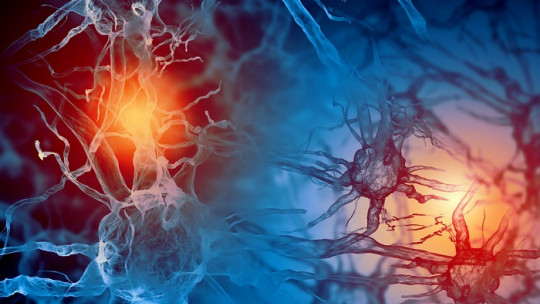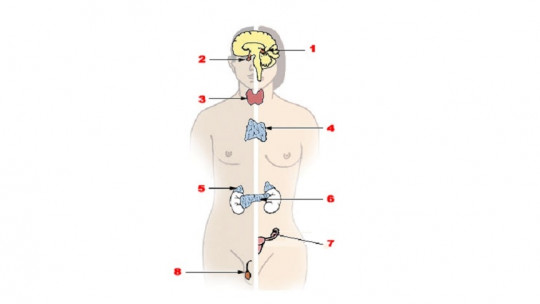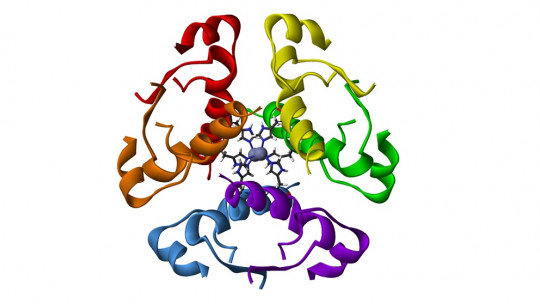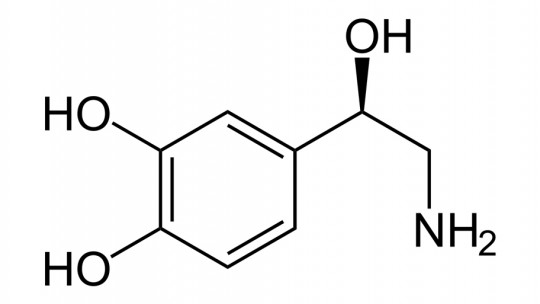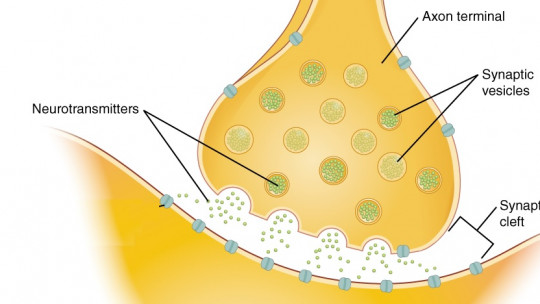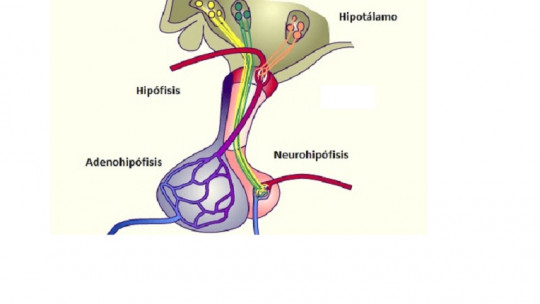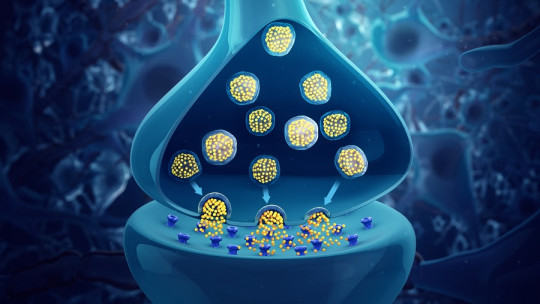
Our body needs hormones and neurotransmitters to function properly.
Neurotransmitters allow communication between neurons and other cells, crossing the synaptic space and through nerve impulses. Hormones, for their part, are secreted by the endocrine glands, intervening in the regulation of a multitude of basic bodily functions.
Although they share structural and functional characteristics, there are also aspects that differentiate them. In this article we explain what they are, how they work and what they are. the main characteristics of hormones and neurotransmitters, as well as the most important differences between them
Hormones: definition, characteristics and classification
Hormones are chemical substances that act as messengers and activate different processes so that our body functions correctly. They are produced in the endocrine or secretory glands (such as the hypothalamus, pituitary gland or thyroid, for example) and are released into the extracellular space, diffusing through the blood vessels into the blood.
The main characteristics of these chemical messengers is that they are involved in metabolism and other functions (immune system, sexual reproduction, etc.); They act in tissues of the body that may be long distances from the point of origin from where the hormone is released; The effect they cause depends on the amount of hormones there are, being directly proportional to their concentration.
Almost all hormones can be classified, chemically, into three large groups: peptide hormones, composed of amino acids, polypeptides or oligopeptides, such as insulin or vasopressin; hormones derived from amino acids, which use them to synthesize, such as adrenaline; and lipid hormones, from the group of eicosanoids or steroids, such as cortisol and testosterone.
Hormones can produce stimulant effects, promoting activity in a tissue (e.g. prolactin); inhibitory effects, decreasing activity (e.g. somatostatin, which inhibits the release of growth hormone); antagonistic effects, when two hormones have opposite effects on each other (e.g. insulin and glucagon); and synergy effects, when two hormones together produce a more powerful effect than separately (e.g. growth hormone and thyroid hormones).
Neurotransmitters: definition, classification and characteristics
Neurotransmitters are chemical substances that our body uses to send information from neurons to others, through the synaptic space between them. These signals travel to and from the central nervous system, with the aim of coordinating our body, regulating muscle activity, body secretions and the activity of different organs.
Chemical messengers that act as neurotransmitters share some basic characteristics: they are stored in synaptic vesicles, they are released when calcium ions (Ca2+) are introduced into the axon terminal in response to the action potential, and they produce their effect by binding to membrane receptors. of the postsynaptic cell.
The main function of neurotransmitters is to inhibit or stimulate the activity of postsynaptic cells depending on the type of receptor on which they exert their effect, triggering changes in the permeability of the neuronal membrane and in its enzymatic activity, with the mediation of other neuromodulators (such as cAMP and cGMP).
There are different types of neurotransmitters that can be classified as follows:
Differences between hormones and neurotransmitters
Hormones and neurotransmitters share a basic characteristic and that is that they both act as chemical messengers intervening in the regulation of different bodily functions. However, There are important differences between a hormone and a neurotransmitter Next, we will see which ones.
One of the differences between hormones and neurotransmitters is that the former are released by the endocrine glands into the bloodstream; on the contrary, neurotransmitters are released into the synaptic cleft that exists between neurons. This leads us to point out another basic difference, and that is that the effect produced by hormones is, in general, much longer than that of neurotransmitters.
Another characteristic that differentiates these two types of chemical messengers is that the neurotransmitter, when released, It only communicates with the closest neuron, through the synaptic space; However, hormones communicate with other cells that may be a great distance away as they travel through the bloodstream. The difference would also be that neurotransmitters act specifically in the nervous system, while hormones could do so anywhere in the body.
Sometimes the distinction between hormone and neurotransmitter is not entirely clear Some neurotransmitters also act as hormones, such as catecholamines (adrenaline, norepinephrine and dopamine). These can be produced by the adrenal glands and released into the bloodstream, exerting a hormonal effect; and at the same time, they are released in the nerve endings, acting as neurotransmitters. In these cases, they are also called neurohormones.
According to the French doctor, Roger Guillemin, a neurotransmitter would be nothing more than a paracrine secretion hormone (a type of cellular communication by chemical secretion), although due to their specific characteristics, they are usually considered to be another type of messenger other than the hormone.
However, currently There are still authors who consider that a hormone is any substance that is released by one cell to act on another, whether close or distant, and regardless of its origin or location, as well as the route used for its transport (blood circulation, extracellular fluid or synaptic space). The definitions of hormone and neurotransmitter therefore remain open to interpretation.

